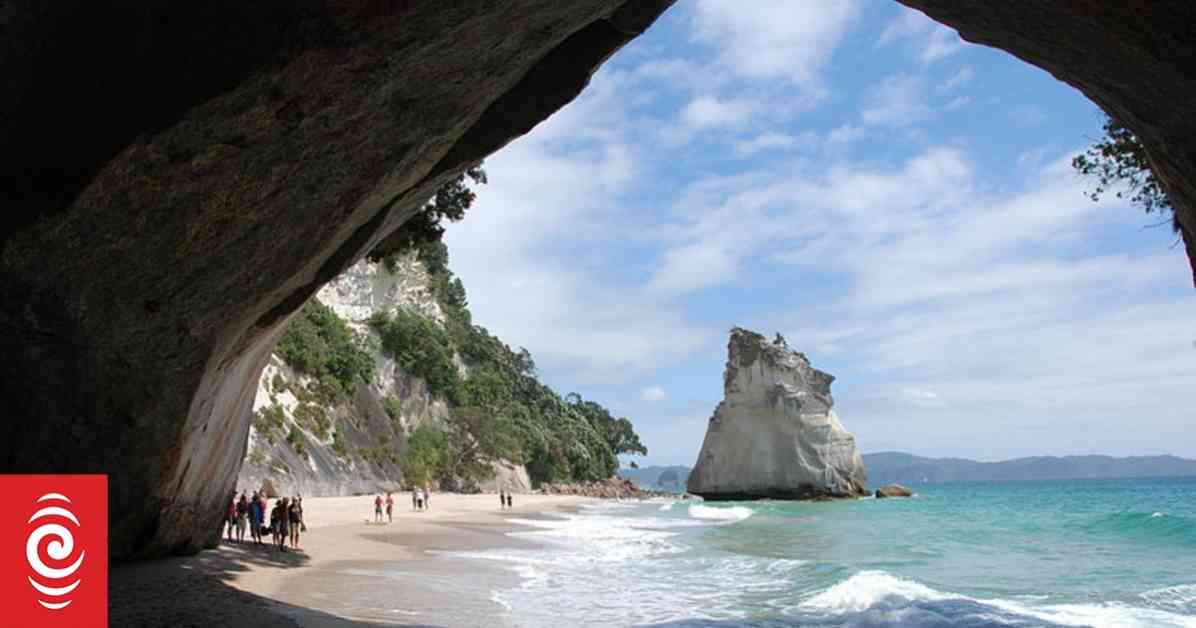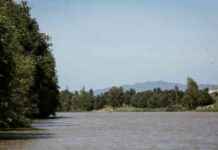New Zealand’s Tourism Industry at Risk Due to Climate Change Impacts
New Zealand’s tourism industry is facing a significant threat as the effects of climate change continue to wreak havoc on the country’s most valuable asset – its environment. Cathedral Cove, a beloved and iconic beach on the North Island, fell victim to the destructive forces of Cyclone Gabrielle, resulting in its closure for nearly two years before finally reopening in December. This incident serves as a stark reminder of the vulnerability of New Zealand’s natural wonders in the face of climate-related disasters.
The Toll of Climate Change on Tourism
The Department of Conservation has sounded the alarm, attributing the damage inflicted on Cathedral Cove and other locations across the North Island to the growing impacts of climate change. According to heritage and visitors director Cat Wilson, the frequency and severity of such incidents are on the rise, posing a significant risk to Aotearoa’s tourism market. With over half of all international visitors and 80% of New Zealanders flocking to the country each year to marvel at its pristine landscapes and protected areas, the tourism industry stands to lose a substantial portion of its revenue if these natural treasures continue to be compromised. A Call to Action from Industry Leaders
EcoZip Adventures managing director Gavin Oliver is among those in the tourism sector who are acutely aware of the implications of climate change on their businesses. With a focus on conservation and education, Oliver emphasizes the importance of preserving New Zealand’s natural environment for future generations. By integrating sustainability practices into his ziplining operations and investing in conservation efforts, Oliver hopes to mitigate the impact of climate change on the country’s tourism offerings.Adapting to a Changing Landscape
As the realities of climate change become increasingly evident, the Department of Conservation is faced with tough decisions regarding the rebuilding and restoration of damaged sites. Cat Wilson acknowledges the need for strategic planning and resilience in the face of future challenges. While not every ecosystem or species may survive the onslaught of severe weather events, efforts are being made to prioritize conservation and sustainability in the tourism sector.
EcoZip Adventures managing director Gavin Oliver is among those in the tourism sector who are acutely aware of the implications of climate change on their businesses. With a focus on conservation and education, Oliver emphasizes the importance of preserving New Zealand’s natural environment for future generations. By integrating sustainability practices into his ziplining operations and investing in conservation efforts, Oliver hopes to mitigate the impact of climate change on the country’s tourism offerings.
Adapting to a Changing Landscape
As the realities of climate change become increasingly evident, the Department of Conservation is faced with tough decisions regarding the rebuilding and restoration of damaged sites. Cat Wilson acknowledges the need for strategic planning and resilience in the face of future challenges. While not every ecosystem or species may survive the onslaught of severe weather events, efforts are being made to prioritize conservation and sustainability in the tourism sector.
In the wake of these developments, one thing remains clear – the preservation of New Zealand’s natural beauty is not just a matter of economic importance but a moral imperative to safeguard the country’s ecological heritage for generations to come. As tourists and locals alike come together to appreciate and protect the wonders of Aotearoa, the resilience and adaptability of the tourism industry will be put to the test in the face of climate change.

















